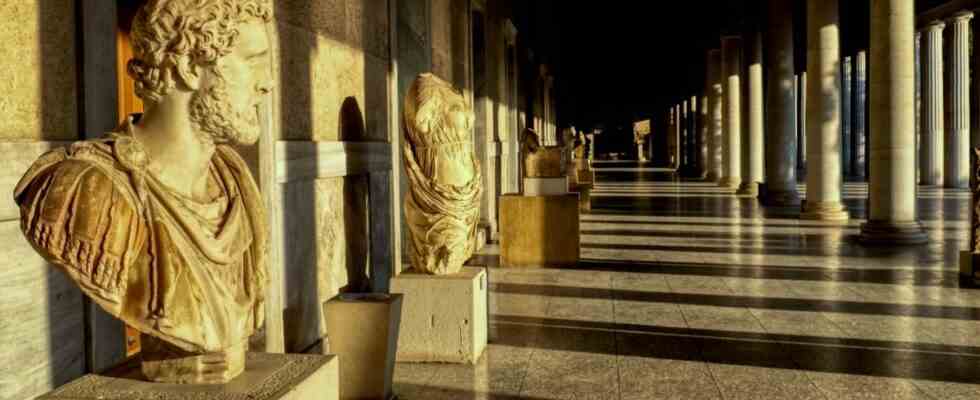The agora, the central square in an ancient Greek city, was not just a place where people bought meat, vegetables and other necessities. It was also a place for exchange and discussion – also a market for ideas. The district used this picture as a guide for a new project that is now starting. Meat and vegetables are not available, but people should have the opportunity to contribute their ideas for sustainable development of the district by 2030 on a new digital platform. According to Ludwig Karg from Baum Consult, the district’s consulting firm, there is nothing similar in Bavaria.
The project already has a long run-up with many workshops in which representatives of clubs and organizations as well as politics identified and discussed the most important topics for the district – from affordable housing to the integration of immigrants to mobility and settlement development. 20 key projects were developed from this, some of which are already being implemented. Comprehensive public participation was planned from the start, but this project also came to a standstill during the Corona years. After all, according to regional manager Augustinus Meusel, there were plenty of other issues that kept people busy during this time.
Regional manager Augustinus Meusel as well as Christopher Prange and Ludwig Karg from Baum Consult presenting the project (from left).
(Photo: Christian Endt)
But now it should start, the platform is already activated and will also be easy to find on the homepage of the district office in the future. Comprehensive thoughts on the various fields of action can be read on the page as background information; Anyone who clicks on projects can also quickly determine where exactly the expertise and opinions of the citizens are desired. Karg describes the model as a “homework book for the entire district”.
It should be a new way of citizen participation
Citizens can have a say, for example, about how volunteer work could be better promoted. Or how it could work better with the compensation areas in the district – possibly even by offering their own areas. It is also about an efficiency network for companies; after all, the district is home to around 2000 small and medium-sized companies that could also learn from each other. A company boss could therefore click on the “I’m interested in” button here and then immediately post the offer that he would like to take part in – and which ideas he can contribute. There is only one condition: You have to be registered beforehand.
The suggestions first go to the responsible project managers in the district office and also to Christopher Prange, who is responsible for this area at Baum Consult. They check the suggestions, sort them and establish contacts – provided that those who brought in the ideas also wish this. “This is a new kind of citizen participation,” emphasizes Ludwig Karg. In fact, the focus should be on what the citizens themselves can and want to contribute in order to advance the district. “It shouldn’t be a platform where people just nag and make demands on the district,” says Karg. If it turns out that input from the district population is urgently needed for a project, the platform should also be pointed out via internal mailing lists or social networks.
The Internet Agora is not intended to be a temporary project, there is no deadline for participation. Ludwig Karg definitely expects greater interest once word has got around about the project – and thus also some work for those involved in the project in the district office. In this respect, District Administrator Robert Niedergesäß (CSU) was quite courageous in wanting to go this route.

